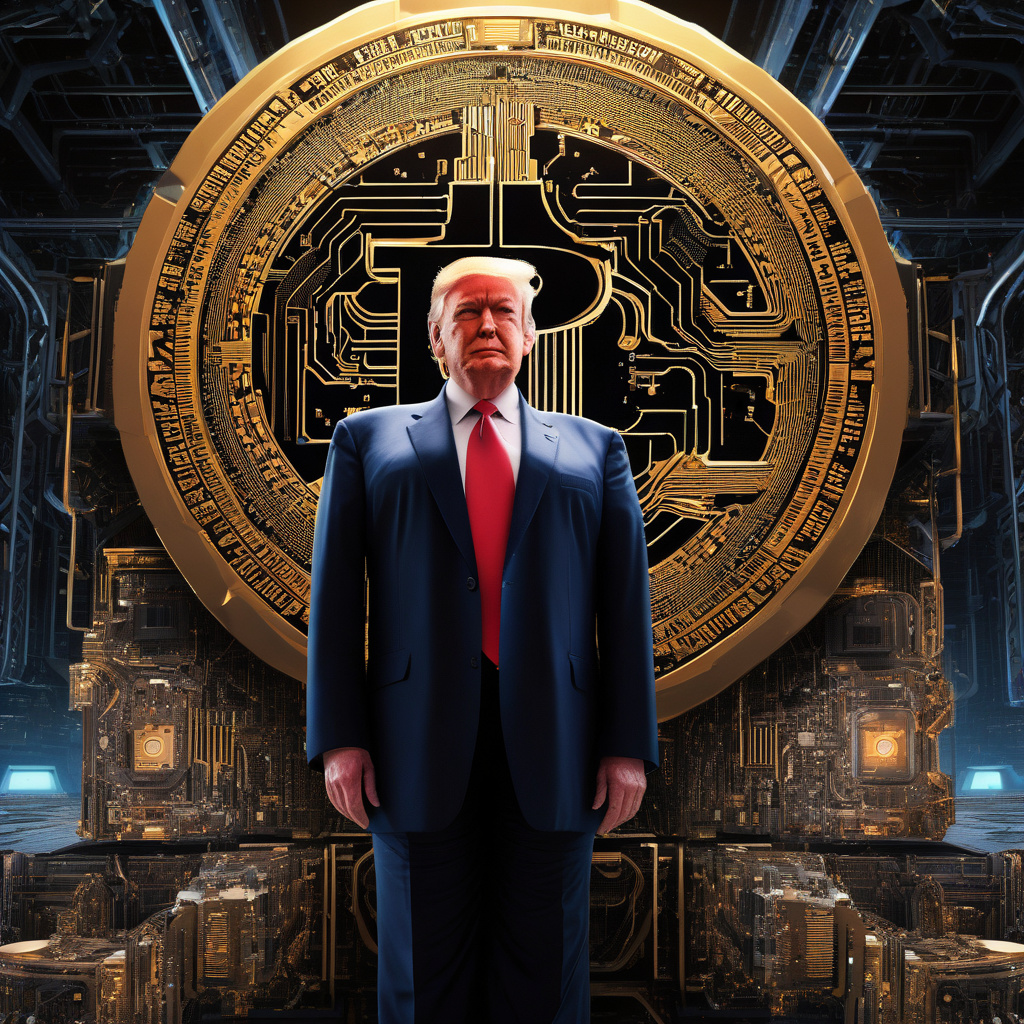Trump’s Big Beautiful Bill: A Potential Catalyst for Blockchain Reset
The recent unveiling of the new US legislation, known colloquially as Trump’s Big Beautiful Bill, has sparked intense debate and speculation across the nation. This comprehensive bill introduces significant tax cuts alongside deep welfare cuts, a move that is projected to raise the national debt to unprecedented levels. However, amidst the fervor surrounding the economic implications of these changes, a lesser-known aspect of the bill has captured the attention of tech enthusiasts and financial experts alike – its potential impact on the integration of blockchain technology.
Blockchain, the decentralized digital ledger technology that underpins cryptocurrencies such as Bitcoin and Ethereum, has been steadily gaining traction in various industries due to its security, transparency, and efficiency. With the growing interest in blockchain technology, many experts believe that its integration into mainstream financial systems is not a question of if, but when. The provisions within Trump’s Big Beautiful Bill seem to pave the way for this integration, albeit indirectly.
By significantly reducing taxes and cutting back on welfare programs, the new legislation is projected to increase the national debt substantially. While this has raised concerns about the long-term financial stability of the country, it also creates a unique opportunity for alternative financial systems to gain prominence. With the traditional financial infrastructure under strain, there is a growing need for innovative solutions, and blockchain technology could offer just that.
One of the key advantages of blockchain technology is its ability to provide secure and transparent transactions without the need for intermediaries. This not only reduces costs but also minimizes the risk of fraud and manipulation. In a time where trust in traditional financial institutions is waning, the decentralized nature of blockchain could offer a much-needed sense of security and reliability to consumers and businesses alike.
Moreover, the integration of blockchain technology could streamline various government processes, including tax collection, welfare distribution, and voting systems. By leveraging the immutable nature of blockchain, the government could enhance the efficiency and accountability of these processes, potentially saving billions of dollars in the long run.
While the path to full-scale blockchain integration is not without challenges, the groundwork laid by Trump’s Big Beautiful Bill could serve as a catalyst for this transition. As the financial landscape continues to evolve, embracing innovative technologies like blockchain may be the key to ensuring economic resilience and competitiveness in the digital age.
In conclusion, Trump’s Big Beautiful Bill, with its bold tax cuts and welfare reforms, has the potential to not only reshape the national economy but also pave the way for the widespread adoption of blockchain technology. By embracing this innovative approach to finance and governance, the US could position itself at the forefront of the digital revolution, setting a new standard for economic efficiency and transparency in the process.
blockchain, Trump, legislation, innovation, economy











